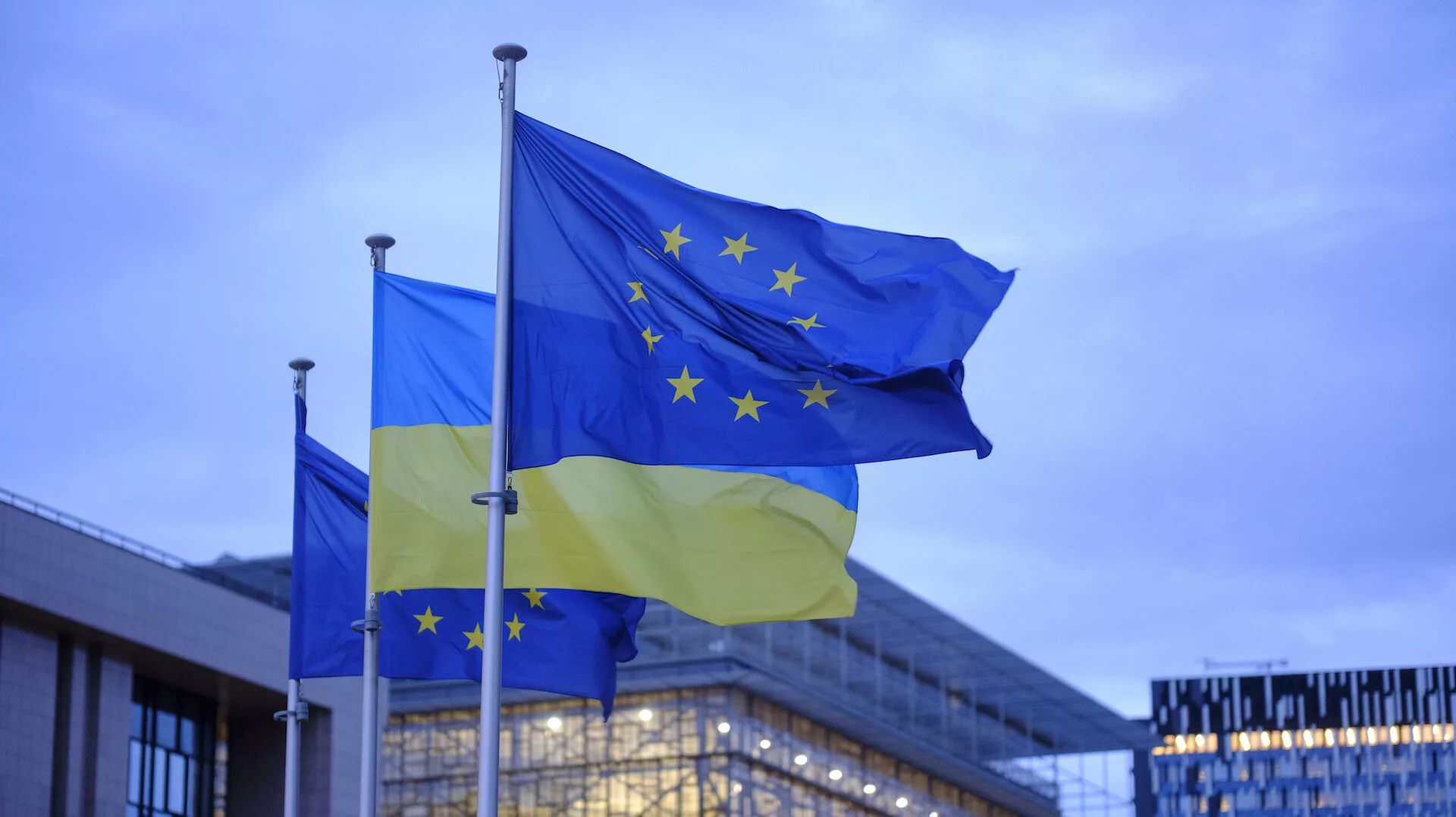
Following the troubles at Credit Suisse and the failure of two smaller US banks, many of the world’s central banks have been taking action to boost confidence in the banking sector. The fact that the monetary authorities have acted so swiftly shows that there is some concern that it could become a systemic issue if it is not dealt with immediately. However, many observers say that if it was systemic, would UBS be in a position to bail out Credit Suisse as it has done, would HSBC been able to have buy up the UK arm of SVB, would those US banks been able to provide the deposits to support the First Republic? This week we deliver updates on the current banking crisis together with analyses and opinions from different sources.
We also report on the latest regulations, reports, and analyses to help keep you up to date with global trends. There are updates on sanctions and the world of crypto, the latest news surrounding ESG, and to complete this week’s Roundup, we deliver a selection of items covering money laundering, corruption, and fraud.
Banking Crisis Week 2

UBS to buy beleaguered Credit Suisse for just 3 billion francs (£2.6 billion)
Banking giant UBS will buy its ailing rival Credit Suisse in a snap deal brokered by Swiss authorities to avoid further financial chaos after a series of high-profile failures. Switzerland’s watchdog Finma approved the takeover, which came after frantic talks between bank bosses and ministers desperate. UBS will pay 3 billion francs (£2.66bn) to acquire its smaller rival, far below the price that would have been expected in less urgent circumstances.
Central banks take swift action to keep cash flowing amid investor fears
As Swiss authorities persuaded UBS to buy rival Credit Suisse, some of the world’s largest central banks came together to stop a banking crisis from spreading. In a global response not seen since the height of the pandemic, central banks in the US, Canada, England, Japan, the EU, and Switzerland joined forces in a coordinated action to enhance market liquidity.
Stocks rebound as US and UK seek to calm investors
Global stock markets have bounced back after the US and UK governments again reassured markets about the stability of banks, after a string of failures unnerved investors. Stock markets recovered after Treasury Secretary Janet Yellen signalled the US government would protect people’s deposits if another bank collapsed.
“The situation is stabilising, and the US banking system remains sound.”
~ Janet Yellen, US Treasury Secretary
UK banking system ‘safe’ following UBS rescue of Credit Suisse
The UK’s central bank has stated that banks are “safe” after regulators agreed a rescue deal for Credit Suisse aimed at preventing fears over banks spreading. The bank was bought by rival UBS in a Swiss government-backed deal amid fears over the global financial system after the failure of the Silicon Valley and Signature banks in the US. Yet despite the swift action by regulators, stock markets in the UK and Asia fell.
Credit Suisse rescue damages Switzerland’s reputation for stability
The takeover of Credit Suisses for just $3bn (£2.5bn) is not only a humiliation but will leave its shareholders poorer and many people out of a job. But perhaps the greatest damage of all could be to Switzerland’s reputation as a safe place to invest.
BlackRock’s CEO sees the possibility of a broader banking crisis on the horizon
As reported last week, Larry Fink, the CEO of BlackRock, believes the banking crisis may not be over and the threat to the broader financial system remains. In a much awaited letter to stakeholders, Fink asked “Are the dominoes starting to fall?”
“The regulatory response has so far been swift, and decisive actions have helped stave off contagion risks, but markets remain on edge.”
~ Larry Fink, CEO of BlackRock
Opinion: banking crisis is over thanks to regulators
While many fear a rerun of the financial crisis of 2007-2008, the author of this article believes that this will not happen. It maintains that it was caused by a situation where the participants and regulators (which were practically non-existent) had no clue what was going on and how to fix it. When the market came off the rails all they could do was clean up the aftermath, today the regulators and financial authorities are absolutely “on it.”
Legislation, Reports, & Analyses

ProPublica Annual Report 2022
ProPublica publishes stories that make a difference, spur reform and change lives. The work showcased in this year’s report is striking in its scope, from ground-breaking work that revealed the algorithms that may be contributing to spiking rental prices to a project that recounted the legacy of the night raids carried out by CIA-backed Zero Units, which killed countless civilians in Afghanistan.
Disambiguating entities with identical names
How do you determine whether two or more entities with the same name are in fact the same real-world entity? Depending on the nature of your work and the investigation in question, there are legal, regulatory, reputational, even national security implications to getting this wrong. That’s where entity disambiguation comes in; the process of distinguishing targets from others bearing the same name. This article reveals two different but complementary approaches to identifying an entity.
FATF Report: Countering Ransomware Financing
Criminals are almost exclusively using crypto, or virtual assets and have easy access to virtual asset service providers around the world, consequently jurisdictions with weak or non-existent AML/CFT controls are of greatest concern. This new FATF report analyses the methods that criminals use to carry out their ransomware attacks and how payments are made and laundered. In addition, it proposes actions that countries can take to more effectively disrupt ransomware-related money laundering.
Global Terrorism Index 2023
The tenth edition of the Global Terrorism Index (GTI) provides a comprehensive summary of the key global trends and patterns in terrorism over the last decade. The calculation of the GTI score considers not only deaths but also incidents, hostages and injuries from terrorism, weighted over a five-year.
Sanctions

Credit Suisse invested in sanctioned Chinese entities
Credit Suisse’s sale to USB comes after it reported its largest annual loss since the 2008 financial crisis, brought about by an exodus of shareholders and the release of media investigations exposing it as a safe haven of choice for unsavoury clients. Data from the Hong Kong Stock Exchange has revealed Credit Suisse’s investments in sanctioned entities and companies connected to sanctioned entities such as China Railway Construction (CRRC).
Analysis of ICIJ data shows how to stop Russian oligarchs in their tracks
A new study entitled “Complex systems of secrecy: the offshore networks of oligarchs,” states that sanctions “have proved easier to bypass than policymakers expected,” because governments have been “slow to address the enabler problem.” Instead of targeting oligarchs and their assets, the researchers have proposed a “more effective and efficient” strategy: sanctioning the professional wealth managers who help the oligarchs stack their wealth offshore, such as bankers, lawyers and accountants.
UK High Court rejects first challenge to a UK sanctions listing
The UK High Court issued a judgment in the first challenge to a UK sanctions listing under Section 38 of the Sanctions and Anti-Money Laundering Act 2018 (“SAMLA”). The challenge was brought by LLC Synesis, a Belarusian technology company (“Synesis”) and followed an unsuccessful ministerial review of Synesis’ UK designation. The High Court rejected the challenge on the grounds that the decision to maintain Synesis’ designation was reasonable and proportionate.
SIFMANet report: Recommendations for effective sanctions against Russia
To ensure an effective sanctions regime, it is fundamental to conduct a review of the progress achieved by member states in implementing these sanctions. The European Sanctions and Illicit Finance Monitoring and Analysis Network (SIFMANet) was established with this purpose. Throughout its in-country analyses, SIFMANet has collected recommendations to be actioned to overcome the implementation challenges identified and enhance the effectiveness of its restrictive measures against Russia.
EU Russia sanctions: Overview, impact, challenges
The ten packages of EU sanctions adopted since Russia’s invasion of Ukraine have resulted in an unparalleled set of measures targeting the key sectors of the Russian economy and the political elites. New sanctions have also been adopted against Belarus and Iran, in response to their involvement in Russia’s war of aggression. This report from the European Parliamentary Research Service (EPRS) examines the breadth of sanctions adopted, their impact, and their effectiveness to date.
Russia imposes sanctions on 23 Britons over London’s support of Ukraine
Russia has imposed sanctions on 23 citizens of the UK, which has been among the strongest backers of Ukraine since Russia’s unprovoked invasion. The Russian Foreign Ministry said in a statement that the move was a response to London’s “military and technical support of Ukraine.” The persons targeted include British military personnel, political analysts, judges, and officials of the British penitentiary system.
Crypto

Moscow-based exchanges offering to anonymously convert stablecoins for cash in the UK
New research from Transparency International Russia reveals how after scouring the internet and social media channels, they discovered eight Russian-based crypto exchanges who said they were willing to transfer USDT (the most widely used stablecoin, pegged to the dollar) and change it into cash for delivery in London. Curiously, this was not a service they sold over the counter they had to ask for it. After conducting a series of undercover interviews, the picture became even more concerning.
US and German authorities seize cryptocurrency laundering service
ChipMixer, an unlicensed cryptocurrency mixing platform suspected of laundering almost €3 billion of Bitcoin for crime syndicates across the globe since 2017 has been taken down by US and German authorities. The online platform obscured parties involved in cryptocurrency transactions, thereby helping criminals to disguise the proceeds of drug trafficking, weapons trafficking, ransomware attacks and other crimes.
Thousands may have lost out to crypto trading app
Thousands of people are believed to have lost their savings after investing in a cryptocurrency trading app called iEarn Bot. Experts investigating the company say it could be one of the largest crypto scandals to date.
Crypto platform Anchorage cuts workforce by 20%
Digital asset custody services provider Anchorage Digital Bank is cutting 20% of its headcount, as it restructures in the face of market conditions and regulatory uncertainty. The United States’ only federally chartered digital asset bank operating under the oversight of the OCC stated that it has been caused by regulatory uncertainty, macroeconomic challenges, and crypto market volatility.
Hackers steal $197 million in crypto in Euler Finance attack
Lending protocol Euler Finance has been hit by a cryptocurrency flash loan attack, with the threat actor stealing $197 million in multiple digital assets, including $8.75 million worth of DAI, $18.5 million in WBTC, $33.85 million in USDC, and $135.8 million in stETH.
FBI warns of spike in ‘pig butchering’ crypto investment schemes
According to the Federal Bureau of Investigation (FBI), US citizens are increasingly being targeted in ‘pig butchering’ cryptocurrency investment schemes, resulting in over $2 billion worth of cryptocurrency lost to cyber criminals last year. In this scam, the fraudsters approach victims via dating platforms, messaging apps, or social media platforms and introduce them to an investment scheme that will eventually allow them to empty the targets’ crypto wallets.
ESG

US President Biden vetoes anti-ESG resolution
President Biden has issued the first veto of his presidency, defending a recently enacted Department of Labor rule allowing fund managers for ERISA plans to include ESG considerations in the investment process from Republican attempts to overturn the rule in Congress.
Florida Governor DeSantis launches 18-state alliance to ban ESG investing
The governors of 18 US states have announced the formation of an alliance, led by Florida Governor Ron Desantis, aimed at coordinating actions to “protect individuals from the ESG movement” with actions including banning the use of ESG considerations in state and local pension funds. The new proposed laws form the latest move in the ongoing anti-ESG movement by Republican politicians in the US.
EU lawmakers vote to require all member states to cut emissions by 2030
The European Parliament has adopted a revised Effort Sharing Regulation, including a first-ever requirement for all EU member states to reduce greenhouse gas emissions by 2030, and raising the EU’s overall 2030 emissions reduction target to 40% compared to 2005 levels, up from its prior 30% goal.
Indigenous group fighting emissions cap quietly supported by top Canadian oil company
A national Indigenous group is fighting a proposed federal limit on oil and gas sector emissions by arguing it will harm First Nations, Métis and Inuit communities. But the group has a powerful non-Indigenous ally, according to corporate documents from Cenovus, a Calgary-based oil sands company that last year had net earnings of $6.5 billion, it paid for membership with the Indigenous Resource Network (IRN).
Harnessing UK’s Environmental Improvement Plan
The UK’s Environmental Improvement Plan (EIP) seeks to halt the decline in our natural world and improve it. This report examines the EIP’s aims for mitigating and adapting to climate change and ensuring reduced risk of harm from environmental hazards. In light of the reforms expected, it considers what steps businesses should take to plan ahead.
EU cracks down on plastic, but will others follow?
The European Commission has proposed sweeping packaging regulations that would require companies selling products in EU countries to make their packaging easier to reuse, recycle or in some cases compost. The EU’s overall goal is to reduce packaging waste by 5% by 2030, compared to 2018 levels, and by 15% by 2040. Will these tougher EU targets on packaging waste provide a framework for better global plastics policies?
Net-Zero Banking Alliance: The Commitment
The Net-Zero Banking Alliance recognises the crucial role of banks in supporting the global transition of the real economy to net-zero emissions. All banks who are members of the Alliance have signed the Commitment Statement and use the accompanying Guidelines for Climate Target Setting in order to achieve their goals.
Collagen sold in high street stores linked to Amazon deforestation
An investigation has linked bovine collagen powder, a health supplement sold in shops like Boots and Holland & Barrett, to deforestation in Brazil. The Bureau of Investigative Journalism, the Guardian, O Joio e O Trigo, the Pulitzer Center’s Rainforest Investigations Network, and ITV News have traced the supply chain of cattle used to produce collagen to meat processors in Brazil, which have been repeatedly linked to illegal deforestation and the invasion of indigenous lands.
FBI: investment fraud costs more than ransomware and business email compromise combined
The latest annual FBI report on the state of cybercrime has shown a massive increase in the amount of money stolen through investment scams. After seven years of dominating the charts, business email compromise (BEC) has been knocked off pole position in the list of losses reported to the Internet Crime Complaint Center (IC3) by investment fraud complaints, which have more than doubled from $1.45 billion in 2021 to a staggering $3.31 billion in 2022.
Money Laundering, Bribery, Fraud, & Corruption

Wealthy executives make millions trading competitors’ stock with remarkable timing
Never-before-seen IRS records reveal that CEOs are sometimes making multimillion-dollar bets on the stocks of direct competitors and partners – and doing so with impeccable timing. An in-depth investigation and analysis explored these transactions that were captured in a vast IRS dataset of stock trades made by the country’s wealthiest people, part of a trove of tax data leaked to ProPublica.
€440 million fraud was ‘laundered through Malta, Cyprus, and Madeira’
An Italian national wanted for his role in a €440 million embezzlement fraud is to be extradited from Colombia. According to reports from authorities, Roberto Amoruso laundered the proceeds of the crime through cryptocurrencies, gold bars and current accounts in Malta, Cyprus and Madeira.
Australian court jails lawyer for 12 years for role in AUD$105 million tax fraud
The Supreme Court of New South Wales has sentenced a Sydney lawyer to 12 years’ jail for his role in knowingly dealing with the proceeds of crime. The money was blackmailed from offenders participating in a syndicate that defrauded the Commonwealth of more than $105 million of unpaid tax over a three-year period.
Ex-head obstructed bank examination over millions of accounts opened without customer authorisation
Carrie L. Tolstedt, the former head of Wells Fargo Bank’s retail banking division has agreed to plead guilty to obstructing a government examination into the bank’s widespread sales practices misconduct, which included opening millions of unauthorised accounts and other products.
Qatar charges ex-finance minister with bribery and embezzlement
Qatar’s former finance minister Ali Sherif al-Emadi will face a criminal trial following his 2021 arrest over embezzlement allegations. Once one of Qatar’s most powerful officials, al-Emadi also served as chairman of the bank, on the board of Qatar’s sovereign wealth fund and as president of the executive board of Qatar Airways.
South African corruption investigator shot dead
A South African accountant who was investigating high-level corruption cases has been shot dead along with his son. Cloete Murray was the liquidator for Bosasa, a company implicated in numerous government contract scandals and also worked as a liquidator for firms linked to the wealthy Gupta brothers, who deny bribery accusations. Police are investigating whether there is a link between Mr Murray’s murder and these corruption investigations.
RiskScreen AML spotlight report
AML Vulnerabilities in the Brokerage Sector

Following a series of recent high-profile cases, financial regulators are now taking an even greater interest in the brokerage sector’s compliance with anti-money laundering (AML) and combatting the financing of terrorism (CFT) legislation.
To ensure your business doesn’t fall foul of any new national and international legislation and regulatory requirements, we have taken an in-depth look into the issue to help you to identify any weaknesses in your existing compliance framework.
In this brand-new industry report, we examine:
– Where stockbrokers and broker-dealers may be vulnerable to AML risk
– The current regulatory environment in the UK, EU, and US
– The requirements for customer due diligence (CDD) and enhanced due diligence (EDD)
– Screening for sanctions, ultimate beneficial owners (UBOs), and politically exposed persons (PEPs)
– How to ensure compliance with AML regulations
Published by: riskscreen.com




